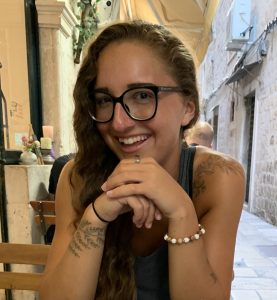DEADLINE: Friday, July 21, 2023 (5.00 PM PST)
A fellowship has been made available through an endowment established by the Estate of John Imrie Watters for a deserving graduate student or medical resident in the Faculty of Medicine engaged in research into the causes, treatment, and cure of lymphatic cancer. Mr. Watters passed away in 2002. The awards are made on the recommendation of the Faculty of Medicine, and in the case of graduate students, in consultation with the Faculty of Graduate and Postdoctoral Studies.
Award
$21,000 for one year (award amount is subject to change).
Eligibility
Applicants must be registered as full-time graduate students or medical residents in the program overseen by the Faculty of Medicine. Applicants must be in good academic standing and conducting research under the supervision of a UBC faculty member who has a primary appointment in the Faculty of Medicine. Applicants who already hold a major award at the time of the award conferral will not be eligible to receive payment of the award and will be recognized in name only if successful.
Application Procedure
A completed application consists of:
1. Application for the Fellowship
a) Complete and sign the Application Form in either PDF or Word formats.
b) Submit the Application Form via the Online Portal.
2. Post-secondary transcripts from all post-secondary institutions attended
Electronic copies of transcripts must be shared with the GPE Office via OneDrive or through email at med.gradpostdoc@ubc.ca by your graduate program coordinator. In case, the applicant is submitting transcripts by themselves, each page has to be initialed by the candidate’s supervisor.
3. Letters of support from two sponsors
One letter should be from the supervisor of the candidate, and the other from the individual familiar with the candidate’s academic and research abilities. Sponsors are asked to comment on the applicant’s research potential and achievements, interpersonal skills, academic abilities, and greatest strengths and weaknesses.
Letters of support should be addressed to Dr. Miriam Spering and emailed directly by the sponsors to the email id med.gradpostdoc@ubc.ca
Dr. Miriam Spering
Associate Dean, Graduate and Postdoctoral Education
317-2194 Health Sciences Mall
Vancouver BC, V6T 1Z3
To facilitate a blind review process, please ask your sponsors to not use your name, gender specific pronouns, or similar identifying characteristics in their letters. They should refer to you as “The Trainee” as needed.
Please refer to the Guidelines and FAQs for specific formatting and submission details.
Elizabeth C. Watters Research Fellowship Recipients
Meredith Clark, MSc Student, Interdisciplinary Oncology
 Meredith Clark is a Master’s student in the interdisciplinary oncology program under the supervision of Dr. Kevin Bennewith currently researching lymphoma, immunotherapy, and the tumour microenvironment. Lymphoma is a type of blood cell cancer that claims the lives of 3,000 Canadians every year. It is the fifth most common type of cancer and the sixth most common cause of cancer death. In recent years, the development of a new type of cancer therapy known as immunotherapy – harnessing the immune system to kill cancer cells – has revolutionized the treatment of many cancers including lymphoma. Unfortunately, the hostile nature of the tumor microenvironment remains a significant barrier, rendering immunotherapy treatments less effective for many patients. It has been identified that cancer-killing T cells which have been starved of sugars have improved tumour-killing capacity in a lymphoma mouse model, and these T cells can even cause complete clearance of lymphoma tumours. However, after several weeks the tumours ultimately regrow. It has been hypothesized that this regrowth is caused by an immune suppressive environment in the tumor which is induced by the otherwise robustly potent sugar-starved T cells. Their preliminary results reveal elevated levels of certain immunosuppressive cell types induced by these sugar-starved T cells which quell their ability to kill tumor cells. Her proposal aims to elucidate how these suppressive cells inhibit the tumour-killing ability of the sugar-starved T cells, with the goal of preventing lymphoma tumour regrowth after immunotherapy. This research will lead to the development of combination treatments that not only kill lymphoma cells more robustly but also prevent cancer recurrence, ultimately leading to complete tumour clearance for patients with lymphatic cancer.
Meredith Clark is a Master’s student in the interdisciplinary oncology program under the supervision of Dr. Kevin Bennewith currently researching lymphoma, immunotherapy, and the tumour microenvironment. Lymphoma is a type of blood cell cancer that claims the lives of 3,000 Canadians every year. It is the fifth most common type of cancer and the sixth most common cause of cancer death. In recent years, the development of a new type of cancer therapy known as immunotherapy – harnessing the immune system to kill cancer cells – has revolutionized the treatment of many cancers including lymphoma. Unfortunately, the hostile nature of the tumor microenvironment remains a significant barrier, rendering immunotherapy treatments less effective for many patients. It has been identified that cancer-killing T cells which have been starved of sugars have improved tumour-killing capacity in a lymphoma mouse model, and these T cells can even cause complete clearance of lymphoma tumours. However, after several weeks the tumours ultimately regrow. It has been hypothesized that this regrowth is caused by an immune suppressive environment in the tumor which is induced by the otherwise robustly potent sugar-starved T cells. Their preliminary results reveal elevated levels of certain immunosuppressive cell types induced by these sugar-starved T cells which quell their ability to kill tumor cells. Her proposal aims to elucidate how these suppressive cells inhibit the tumour-killing ability of the sugar-starved T cells, with the goal of preventing lymphoma tumour regrowth after immunotherapy. This research will lead to the development of combination treatments that not only kill lymphoma cells more robustly but also prevent cancer recurrence, ultimately leading to complete tumour clearance for patients with lymphatic cancer.
Antonio Wong, MSc Candidate, Interdisciplinary Oncology

How do you know if a cancer drug works on a patient, when every patient is different? Antonio Wong (He/him/his) believes that cancer care is personal; and he dedicates his career to tackle this question, under the guidance of Dr. François Bénard in Interdisciplinary Oncology. Antonio is focusing on pre-targeting positron emission tomography (PET), a medical imaging method to visualize localization of antibody drugs in metastatic diseases. The proposal aims to first confirm drug-tumor binding, and then observe tumor shrinkage using therapeutic radioisotopes. As the recipient of Laurel L. Watters Research Fellowship (2021), Antonio achieved the first step of developing novel oligonucleotides to fuel his research pipeline; this serves as a stepping stone to predict antibody drug efficacy. Expanding the scope to lymphatic cancer, Antonio’s work will tether radioisotopes to Rituximab, a monoclonal antibody, for in vivo tracking of CD20+ malignancies, that are commonly found in non-Hodgkin lymphoma, via PET. Due to its highly modular approach, the antibody conjugates can be adapted to introduce therapeutic radioisotopes and target different biomarkers, enabling highly-customizable immunotherapies to advance personalized medicine.

Prakruti Uday is an MSc Candidate in the Interdisciplinary Oncology program, researching lymphoma under the supervision of Dr. Andrew Weng. Follicular lymphoma (FL) is a cancer of B-cells that commonly afflicts people 50 years of age or older. The risk of FL transforming to a more aggressive B-cell cancer with poor prognosis is about 3% per year. While survival of FL patients has improved with the introduction of new therapies, differences in patient outcome necessitates the development of therapeutic strategies that target underlying disease biology. The aim of Prakruti's project is to study the function of frequently altered genes in FL and their contribution to lymphoma. These gene alterations will be introduced into healthy human B-cells obtained from patient lymph node samples using gene editing techniques. Gene edited B-cells will be grown in a 3D model that mimics several aspects of the complex biology B-cells usually undergo in the body, that when dysregulated, can lead to lymphoma. This research project will pave the way for understanding FL disease biology and will provide critical functional insight that will guide development of the next generation of more specific, less toxic therapies.
 Brett Collinge is an MSc Candidate in the Pathology and Laboratory Medicine Program and is conducting his research at the BC Cancer Research Institute under the supervision of Dr. David Scott. His research focuses on understanding the underlying mechanisms that drive the aggressive disease course of the most difficult-to-treat lymphomas, with the aim of identifying the key features that distinguish these lymphomas from others with more favorable outcomes. Efforts to address the disparity in outcomes among different lymphomas have primarily focused on intensifying chemotherapy regimens. This approach has yielded limited success, highlighting the need for the development of new treatment strategies. A promising approach to addressing this clinical challenge is “precision medicine”, where patients receive treatment that is specifically tailored to the features unique to their individual cancer. However, the key genetic features that characterize the most difficult-to-treat subset of aggressive lymphomas remain unknown. Through identifying these features, Brett’s research aims to guide the development of new treatment strategies that will ultimately improve the outcomes of patients with the most clinically challenging lymphomas.
Brett Collinge is an MSc Candidate in the Pathology and Laboratory Medicine Program and is conducting his research at the BC Cancer Research Institute under the supervision of Dr. David Scott. His research focuses on understanding the underlying mechanisms that drive the aggressive disease course of the most difficult-to-treat lymphomas, with the aim of identifying the key features that distinguish these lymphomas from others with more favorable outcomes. Efforts to address the disparity in outcomes among different lymphomas have primarily focused on intensifying chemotherapy regimens. This approach has yielded limited success, highlighting the need for the development of new treatment strategies. A promising approach to addressing this clinical challenge is “precision medicine”, where patients receive treatment that is specifically tailored to the features unique to their individual cancer. However, the key genetic features that characterize the most difficult-to-treat subset of aggressive lymphomas remain unknown. Through identifying these features, Brett’s research aims to guide the development of new treatment strategies that will ultimately improve the outcomes of patients with the most clinically challenging lymphomas.
 Yu (Michael) Li is a PhD Candidate in the Pathology and Laboratory Medicine program and researches lymphoma, the most common group of blood cancers in Canada, under the supervision of Dr. Christian Steidl. Despite recent advances in early diagnosis and treatment of these diseases, a third of lymphoma patients do not respond effectively to treatment or redevelop more severe ailment after first-round therapy. The underlying causes of treatment failure are not fully understood, but several studies have suggested potential explanations including: (1) DNA mutations which affect the expression of survival-associated genes in cancer cells, and (2) changes in cell-to-cell interactions which affect the behaviour of both cancer cells and surrounding cells in the tumour microenvironment. The focus of Michael’s dissertation project is to improve our understanding of the role of recurrent TRAF3 mutations in B cell lymphomas, research that may aid in identifying rational therapeutic targets and alternative treatment for people living with these diseases.
Yu (Michael) Li is a PhD Candidate in the Pathology and Laboratory Medicine program and researches lymphoma, the most common group of blood cancers in Canada, under the supervision of Dr. Christian Steidl. Despite recent advances in early diagnosis and treatment of these diseases, a third of lymphoma patients do not respond effectively to treatment or redevelop more severe ailment after first-round therapy. The underlying causes of treatment failure are not fully understood, but several studies have suggested potential explanations including: (1) DNA mutations which affect the expression of survival-associated genes in cancer cells, and (2) changes in cell-to-cell interactions which affect the behaviour of both cancer cells and surrounding cells in the tumour microenvironment. The focus of Michael’s dissertation project is to improve our understanding of the role of recurrent TRAF3 mutations in B cell lymphomas, research that may aid in identifying rational therapeutic targets and alternative treatment for people living with these diseases.

Annie Tam is a PhD Candidate in the Medical Genetics Program and researches leukemia, the cancer of blood cells, under the supervision of Dr. Peter Stirling. Myelodysplastic syndromes (MDS) are a group of disorders that affect every blood cell type, and often transform into acute myeloid leukemia (AML), the most common type of acute leukemia in adults. Most MDS patients have been identified as having a mutation in their RNA splicing factors. Although the mutation in a specific RNA splicing factor named SF3B1 is commonly observed, the specifics of how it contributes to disease progression remain unknown, and provides the focus to Annie’s dissertation project.